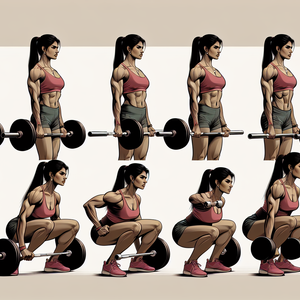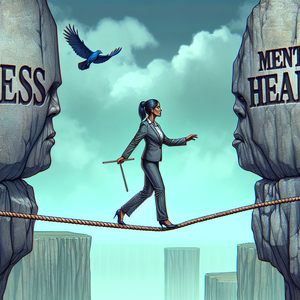Behind the Routines: The Psychology of Artistic Gymnastics Competitors

Gymnasts often face immense pressure to perform at their best, especially during competitions where every move is scrutinized. This pressure can stem from various sources, including personal expectations, coaching demands, and the weight of national pride during events like the Olympics. For instance, Simone Biles, one of the most decorated gymnasts in history, has openly discussed her struggles with performance anxiety. During the Tokyo 2020 Olympics, she prioritized her mental well-being over competition, withdrawing from several events to focus on her health.
The Role of Mental Resilience
Resilience is a crucial trait for gymnasts. The ability to bounce back from setbacks—whether they be falls during practice or failures in competition—is vital for maintaining a successful career in gymnastics. Many athletes employ various mental strategies to develop resilience. Visualization techniques are commonly used to help athletes mentally rehearse their routines.
Coping Mechanisms for Anxiety
To cope with the anxiety that accompanies competition, gymnasts often turn to mindfulness and relaxation techniques. Breathing exercises, meditation, and focus drills are just a few strategies that have proven effective. Olympic gold medalist Aly Raisman has spoken about the importance of mindfulness in helping her stay present and calm during competitions.
The Importance of Support Systems
Support systems play a vital role in the psychological well-being of gymnasts. Coaches, teammates, family members, and sports psychologists can provide invaluable support, helping athletes navigate the challenges they face. A strong coach-athlete relationship built on trust and communication fosters a positive environment where gymnasts feel safe to express their feelings and concerns.
Behind every graceful routine and stunning performance in artistic gymnastics lies an unseen battle with psychological challenges. The pressure to perform, the need for resilience, effective coping mechanisms, and robust support systems all contribute to an athlete's mental landscape.
Sports Psychologist
Sports teams, athletic departments of universities, private practice, and sports academies
Core Responsibilities
Conduct psychological assessments and develop tailored mental training programs for athletes.
Provide counseling to help athletes cope with performance anxiety, stress, and other psychological challenges.
Collaborate with coaches and trainers to integrate mental conditioning into training regimens.
Required Skills
Advanced degree in psychology or sports psychology, along with licensure.
Strong communication and interpersonal skills to build rapport with athletes.
Experience in performance enhancement techniques such as visualization and mindfulness.
Athletic Trainer
Sports teams, gyms, schools, and rehabilitation centers
Core Responsibilities
Develop and implement injury prevention programs and rehabilitation strategies for gymnasts.
Monitor athletes during training and competitions to ensure safety and proper technique.
Provide immediate care for injuries and develop recovery protocols.
Required Skills
Bachelor’s degree in athletic training or a related field, along with national certification (e.g., BOC).
Knowledge of gymnastics-specific injuries and recovery processes.
Strong problem-solving skills and ability to respond quickly in high-pressure situations.
Sports Performance Coach
Sports clubs, gymnastics academies, and fitness centers
Core Responsibilities
Design and implement performance training programs focused on strength, agility, and flexibility for gymnasts.
Assess athlete performance metrics and adjust training regimens accordingly.
Provide ongoing feedback and motivation to athletes during training sessions.
Required Skills
Certified strength and conditioning specialist (CSCS) or similar qualification.
In-depth understanding of gymnastics movements and training methodologies.
Excellent observational and analytical skills to monitor athlete progress.
Sports Nutritionist
Sports teams, athletic facilities, and private practice
Core Responsibilities
Develop individualized nutrition plans to optimize performance and recovery for gymnasts.
Educate athletes about the importance of nutrition in maintaining energy levels and overall health.
Monitor athlete dietary habits and provide ongoing support to address any nutritional deficiencies.
Required Skills
Bachelor’s degree in nutrition or dietetics, with relevant certification (e.g., Registered Dietitian).
Familiarity with the specific dietary needs of athletes, particularly in high-intensity sports like gymnastics.
Strong communication skills to effectively convey nutritional concepts to athletes.
Sports Event Coordinator
Sports organizations, gymnastics clubs, and event planning firms
Core Responsibilities
Plan and organize gymnastics competitions, ensuring all logistical aspects are covered, from venue selection to athlete registration.
Coordinate with coaches, judges, and volunteers to ensure smooth event execution.
Promote events to increase attendance and participation, including managing social media outreach.
Required Skills
Strong organizational and multitasking skills to manage various aspects of event planning.
Experience in marketing and communications to effectively promote events.
Ability to work under pressure and adapt to changing circumstances during events.


